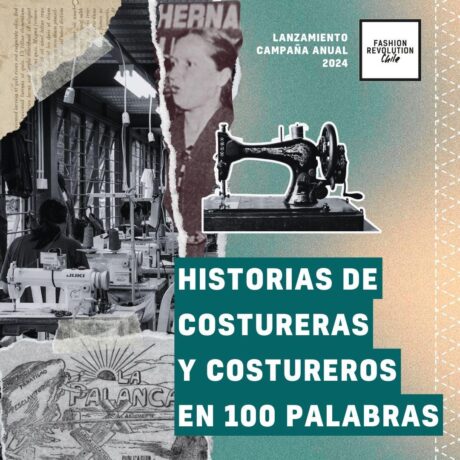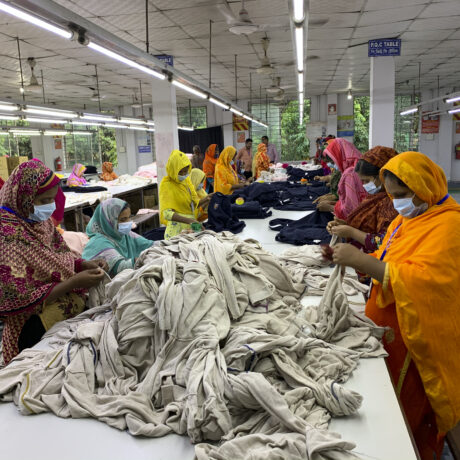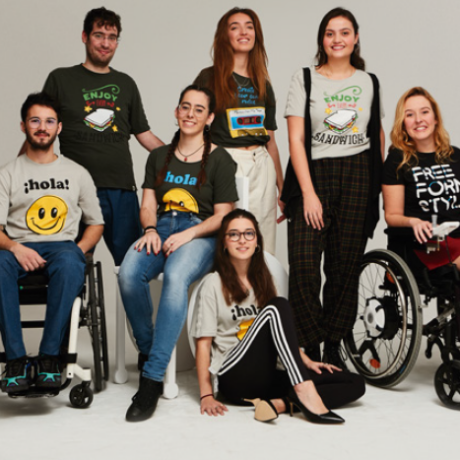Meet Kady Waylie, Fairtrade cotton farmer
Meet Kady Waylie this International Women’s Day.
Kady is one of West Africa’s 10 million cotton farmers. She and her family grow their own food, but their cash comes from growing cotton.
The farmers’ group in Kady’s village in Senegal began to see benefits of Fairtrade with training courses they were given, to produce better quality cotton, to get higher yields, to improve health and safety.
When it comes to harvest time, they are paid a guaranteed price for their produce, above the market price. And the farmers’ group is also paid the Fairtrade Premium – the extra money that the group decides how to spend, men and women together.
The Premium has been used in Senegal to help many of the women and girls in the community – to build and furnish schools, and to buy packs of stationery, books and schoolbags for students. Some has gone on projects for clean drinking water. Some has been spent helping build and equip clinics, and to train villagers in health care and midwifery.
The processes involved have made groups of cotton farmers stronger and more able to look after their own interests, to deal with government officials, to engage with other groups.
Whilst International Women’s Day represents an opportunity to celebrate the achievements of women around the world, sadly it’s not all good news.
Kady’s cooperative, and many others, are desperate to sell more of their cotton on Fairtrade terms because are not earning nearly enough from Fairtrade sales to lift them out of terrible poverty.
The price of cotton has slumped in the last 30 years, even though the cost of producing it has risen and that means farmers in places like Uganda, India, Kyrgyzstan and West Africa are struggling to survive.
Cotton farmers are at the end of a long and complex supply chain in which they are virtually invisible and wield little power or influence. With high levels of illiteracy and limited land holdings, many cotton farmers live below the poverty line and are dependent on the middle men or ginners who buy their cotton, often at prices below the cost of production.
Practically speaking, farmers selling cotton on Fairtrade terms receive a Fairtrade Minimum Price for their cotton, which acts as a vital safety net and gives the stability that is needed to plan for the future. But it doesn’t stop there. They also earn an extra sum – the Fairtrade Premium – which farmer groups can then decide democratically how to best use, to improve quality and productivity for their crops and social projects such as education and health services, to benefit their communities.
But farmers can only sell on Fairtrade terms if British shoppers continue to ask for Fairtrade cotton when we buy new outfits. Put simply, more brands using Fairtrade cotton means more money goes back to help women and girls in cotton growing communities.
There seems to be a trend in the UK now to demand to know how clothes were made, but not who grew the cotton that they are made from, and this lack of awareness is resulting in desperate hardship.
It would be good we all posed the question at the store till ‘Who made my clothes?’ That way, transparency in the garment supply chain can extend from the London catwalks all the way back to cotton farmers picking the cotton in Senegal.
Do fashion lovers realise that as many as 100m rural households – 90 percent of them in developing countries – are directly engaged in cotton production? An estimated 350m people work in the cotton sector when family labour, farm labour and workers in connected services such as transportation, ginning, baling and storage are taken into account.
To help increase sales for cotton farmers like Kady, fashion brands can now work with Fairtrade Cotton on two ways – either the finished product is certified as Fairtrade, or using the new Fairtrade Sourcing Program, they can commit to sourcing a certain amount of cotton on Fairtrade terms. Whichever route they choose, their commitment to Fairtrade Cotton means better lives for the farmers who grew your cotton.
Start asking questions when you shop for clothes this International Women’s Day and help women like Kady get a better deal so they can celebrate their achievements.
Watch this short film to learn more about cotton farmers in Senegal
Join Fashion Revolution Day on 24 April 2015. Turn an item of clothing inside-out and ask the brands the question: Who Made My Clothes? #whomademyclothes
Together we will use the power of fashion to inspire change
and reconnect the broken links in the supply chain.









